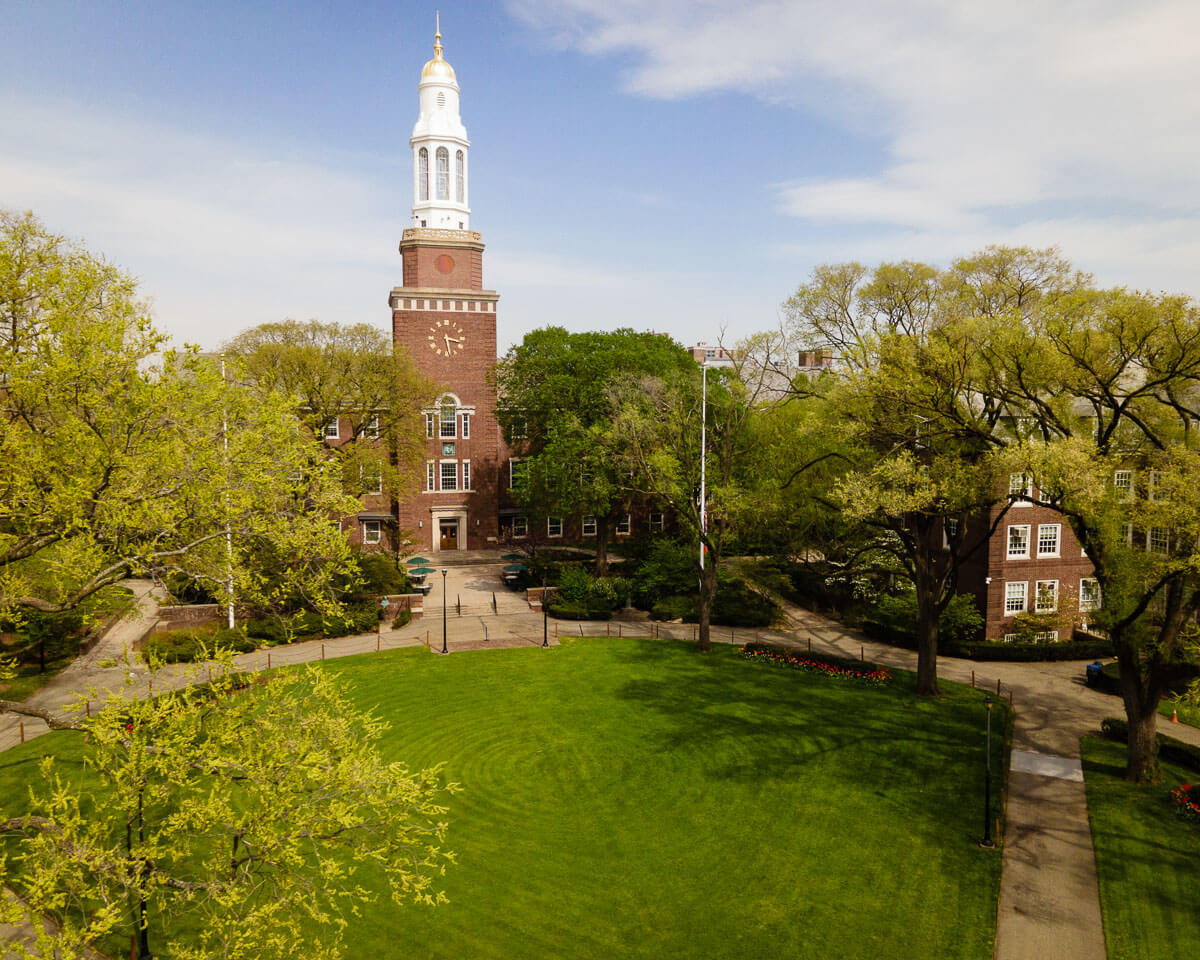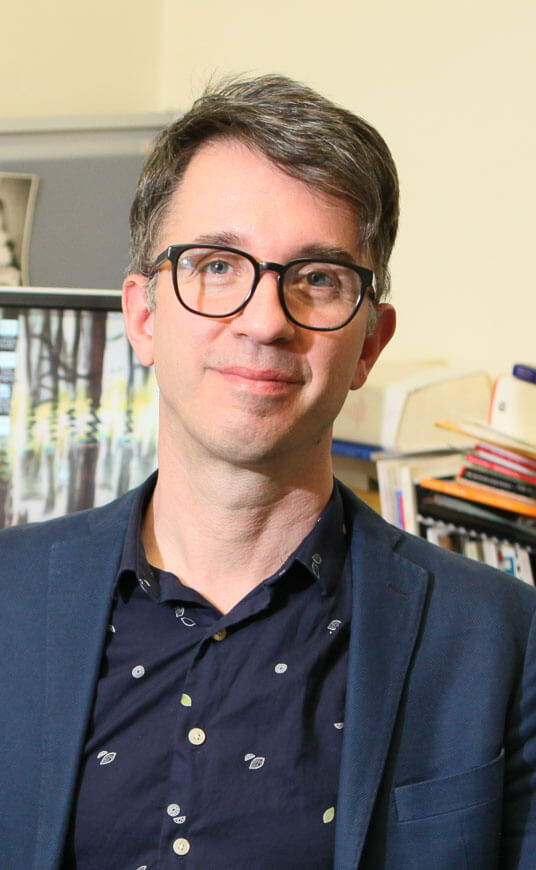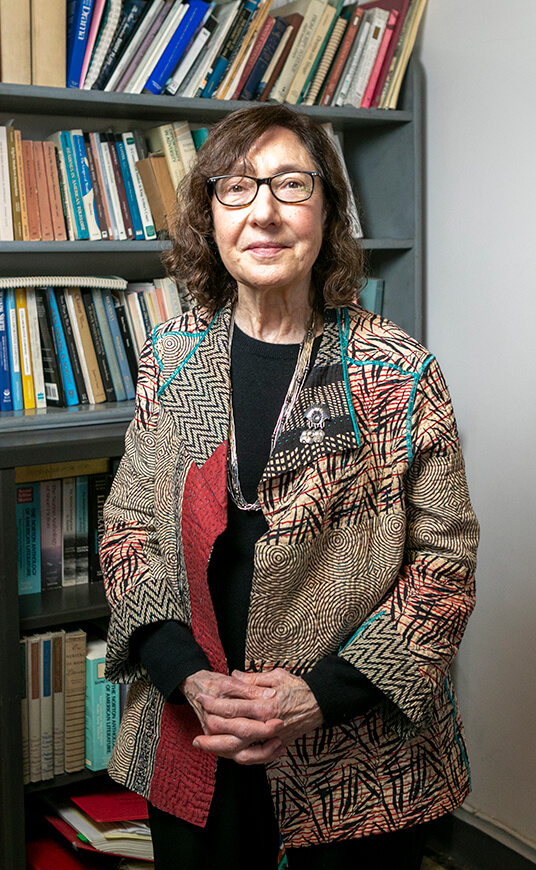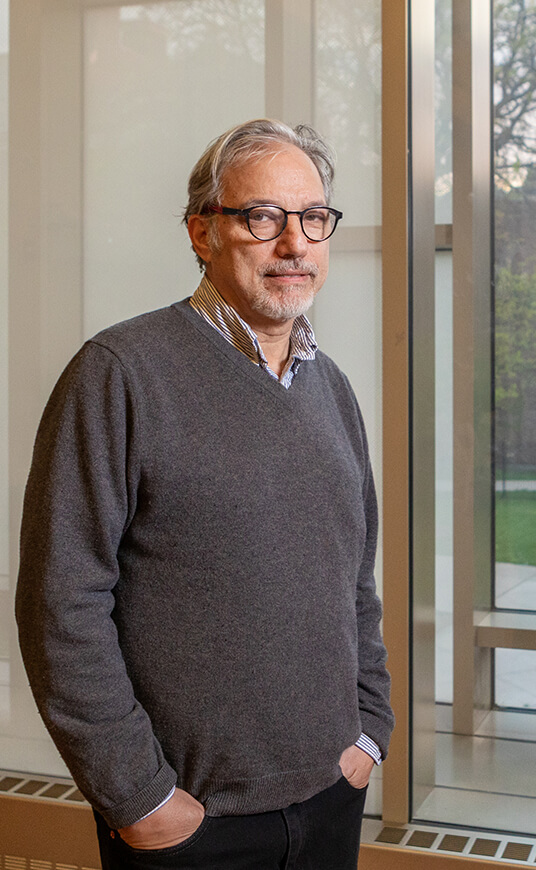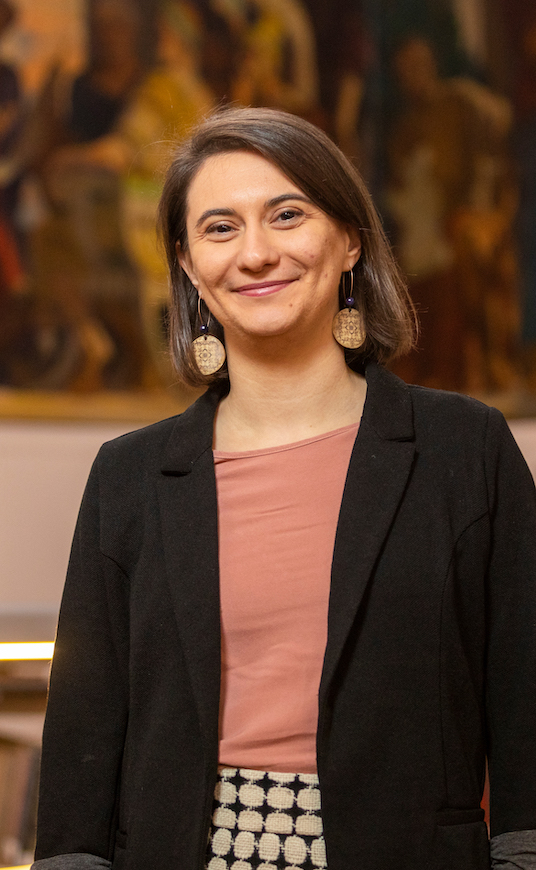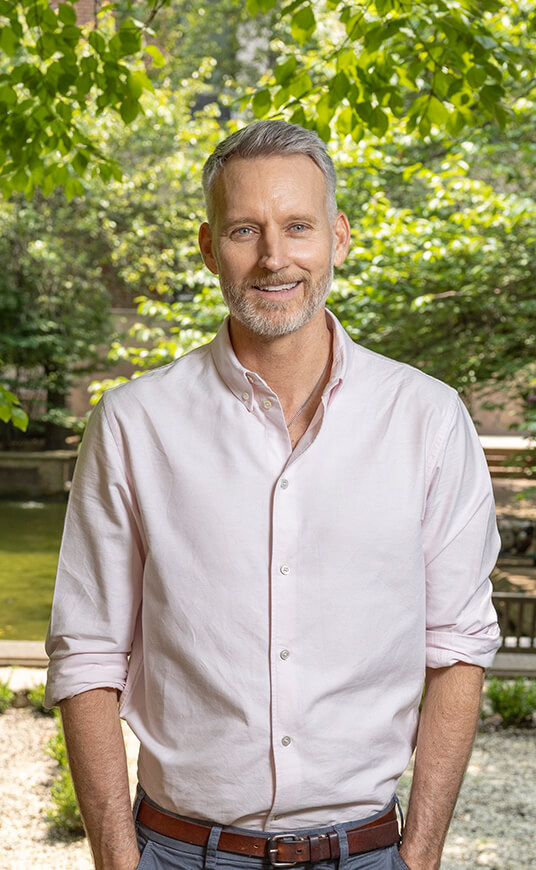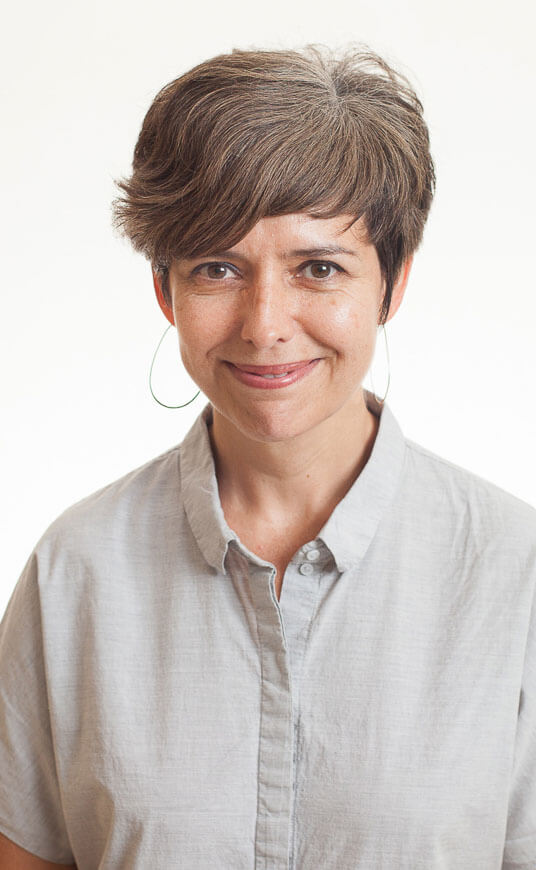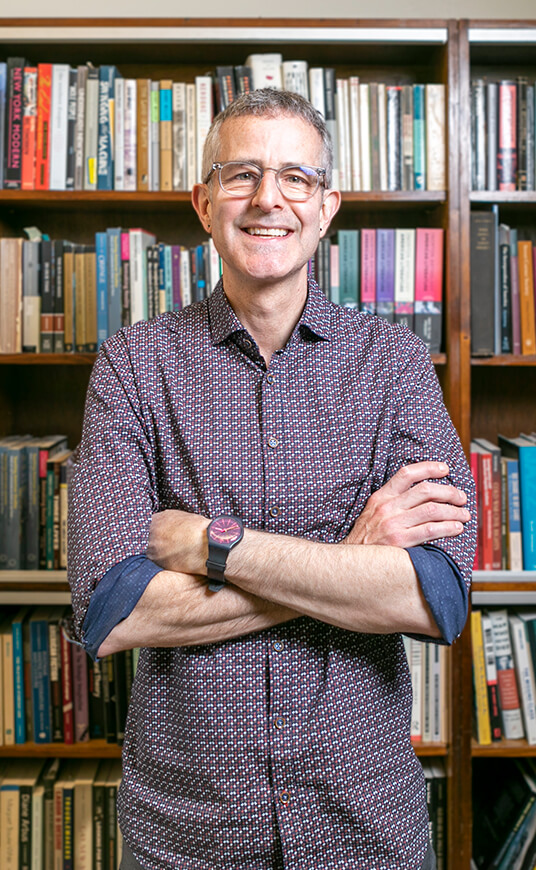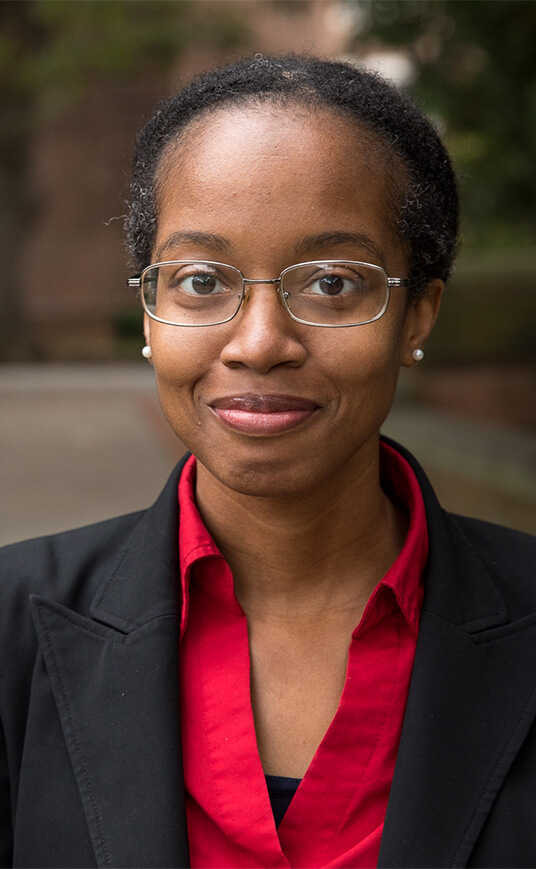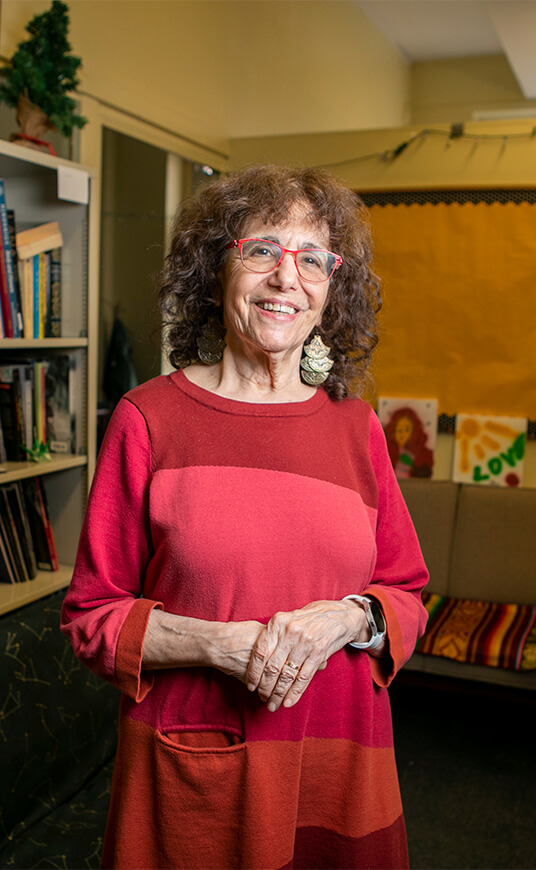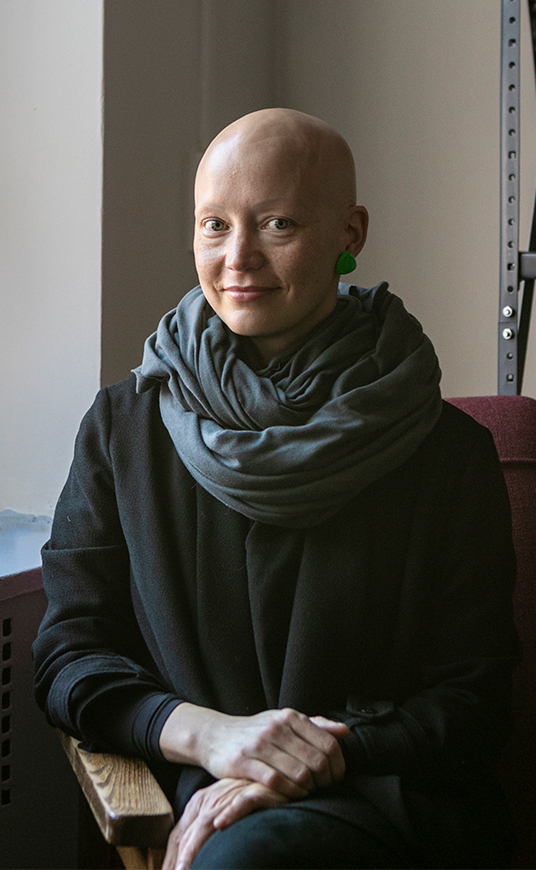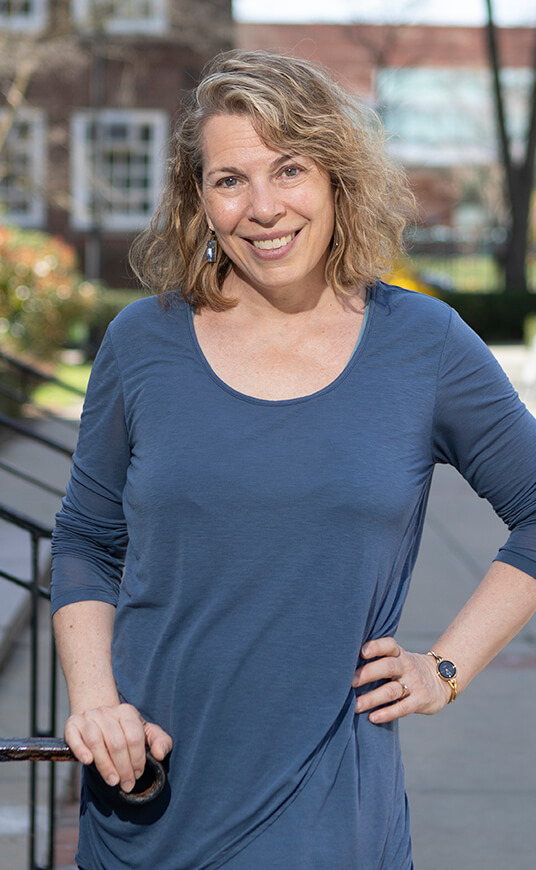English, B.A.
School of Humanities and Social Sciences
Program Overview
If you love reading and writing, if you are imaginative but also practical, consider majoring in English. There is no major as versatile, that prepares you for as many career paths, as English. Whether you’d like to be a published writer, an acclaimed poet, or a hard-hitting journalist, an English degree will help you achieve your goals. Or, maybe you’re interested in comparative literature, linguistics, or teaching; majoring in English supports these dreams, too. By majoring in English, you will study the work of critically acclaimed authors, and develop the reading, writing, and critical thinking skills prized in fields from public relations to law.

Major Details
The program information listed here reflects the approved curriculum for the 2024–25 academic year per the Brooklyn College Bulletin. Bulletins from past academic years can be found here.
Major Requirements (38–47 Credits)
Students may concentrate in the standard English program or in the History and Literature concentration (see “III. Electives” below).
I. English 2120 and 2121 (8 credits)
English 2120 and 2121 are both required. English majors should complete either English 2120 or 2121 or be enrolled in one or the other, before continuing in other electives. No ENGL course numbered lower than 2115 may count toward the major.
II. Period Courses (11-12 credits)
One course from each of three of the following six historical periods; two of the courses must be chosen from periods 1 through 3 and one must be chosen from periods 4 through 6:
- 900–1500: English 3111, 3112, 3520, 4101; Comparative Literature 3614.
- 1500–1660: English 3120, 3121, 3122, 3123, 3124, 3125, 4102; Comparative Literature 3615.
- 1660–1800: English 3131, 3132, 3133, 3234, 4103; Comparative Literature 3616.
- 1800–1900: English 3140, 3141, 3142, 3143, 3145, 3151, 3160, 3240, 4104, 4107; Comparative Literature 3606, 3617.
- 1900–1950: English 3152, 3153, 3160, 3161, 3162, 3164, 3165, 3170, 3171, 3172, 3173, 3193, 4108; Comparative Literature 3607, 3610, 3618, 3622, 3623, 3624, 3625.
- 1950–present: English 3154, 3161, 3162, 3166, 3167, 3174, 3180, 3187, 3193, 3194, 3255, 3256, 4109, 4112, 4113, 4114; Comparative Literature 3609, 3611, 3619, 3621, 3622, 3623, 3625, 4601, 4602.
III. Electives (19-27 credits). Standard English concentration (six additional courses)
- Breadth and Depth Area Studies (one course each from areas A and B):
- A) a course that addresses race/ethnicity or empire/post-colonialism (e.g., English 3158, 3160, 3161, 3162, 3166, 3169, 3180, 3194, 3234, 3240, 3256, 3282, 3526, Comparative Literature 3620, 3623, 3625, 3632, or another course with permission of the chair);
- B) a genre course, or a thematic studies course (addressing a theme such as memory, migration, environmental humanities, literature and psychology, gender and sexuality), or an Interdisciplinary Studies course (English 3156, 3157, 3158, 3159, 3163, 3181, 3182, 3183, 3184, 3185, 3186, 3188, 3189, 3190, 3191, 3192, 3256, 3265, 3281, 3282, 3286, 3287, 3288, 3292, 3292, 4107, 4110, 4111, Comparative Literature 3601, 3602, 3603, 3604, 3605, 3608, 3612, 3613, 3628, 3629;
- One seminar in English or Comparative Literature numbered in the 4000s;
- Three additional courses, including any course numbered English 2115 or higher, or a Comparative Literature course. One course may be in an allied discipline (Africana Studies, American Studies, Anthropology, Art, Classics, History, Linguistics, Modern Languages and Literatures, Music, Philosophy, Political Science, Puerto Rican and Latino Studies, Speech Communication Arts and Sciences, or any other with permission of the chair).
Student Learning Outcomes
1. Department Goal 1: read and think critically
Program Objective 1. Learn to read literature in its historical context; identify characteristic styles and subject matter of different periods.
Program Objective 2. Learn to read through a variety of critical lenses.
Program Objective 3. Be able to carry out close readings of literary texts.
2. Department Goal 2: Understand how language operates
Program Objective 1: Be able to identify and demonstrate knowledge of literary terminology.
3. Department Goal 3: Express ideas–both orally and in writing–correctly, cogently, persuasively, and in conformity with the conventions of the discipline
Program Objective 1: Identify, write, and edit for currently accepted conventions of standard English mechanics, grammar, and style (including proper punctuation, subject-verb and noun-pronoun agreement, parallel construction, appropriate tense sequences and moods, etc.).
Program Objective 2: Learn and follow the conventions of literary argumentation, including formulating thesis statement, and conventions of quoting and citing textual evidence.
Program Objective 3: Learn how to rethink and revise essays.
4. Department Goal 4: conduct research
Program Objective 1: Learn to develop viable research questions and identify appropriate sources.
Program Objective 2: Learn to use library resources, including collections, databases, and archives.
Program Objective 3: Learn how to summarize and cite both primary and secondary sources in support of the argument.
Program Objective 4: Learn appropriate scholarly conventions, such as MLA Style or Chicago Manual of Style.
Program Objective 5: Learn how to avoid plagiarism by citing sources properly.
Degree Maps
To help you pursue your studies in the most efficient manner, and to maximize your efforts to graduate in four years, Brooklyn College has created four-year degree maps for all its majors.
View degree maps for this major and others.
Contact
Martha Nadell
2314 Boylan Hall
E: mnadell@brooklyn.cuny.edu
P: 718.951.5197
Or contact:
Office of Undergraduate Admissions
222 West Quad Center
2900 Bedford Avenue
Brooklyn, NY 11210
E: adminqry@brooklyn.cuny.edu
To make an appointment with an undergraduate admissions counselor, visit:
Tracks
History and Literature
Seven additional courses:
- English 4113;
- From Breadth and Depth Area A, a course that addresses race/ethnicity or empire/post-colonialism (e.g., English 3158, 3160, 3161, 3162, 3166, 3169, 3180, 3194, 3234, 3240, 3282, 3526, Comparative Literature 3620, 3623, 3625, 3632, or another course with permission of the chair);
- A second course in a student’s chosen historical period (from periods 1–6);
- A course from the History Department or an American studies course, cross-listed with History, complementing the two literature courses in the chosen period;
- English 4114;
- Either:
To qualify for this concentration, students must have a B+ or higher average and obtain permission from the chair or major’s counselor. They should seek guidance in choosing their period of study and consult with the counselor on a suitable thesis adviser.
The Support You'll Find
Brooklyn College is an integral part of the cultural and artistic energy of New York City. Our faculty members in the Department of English offer incomparable expertise and tremendous talent, and each brings a unique perspective to their teaching and mentoring in and out of the classroom.
Internships and Employers
Through job fairs, the internship database, and internship panels, the Magner Career Center gives students in the English B.A. program access to career opportunities at a wide variety of employers, including:
- Citi
- HBO
- New York City Department of Education
- New York Times
- New York University
